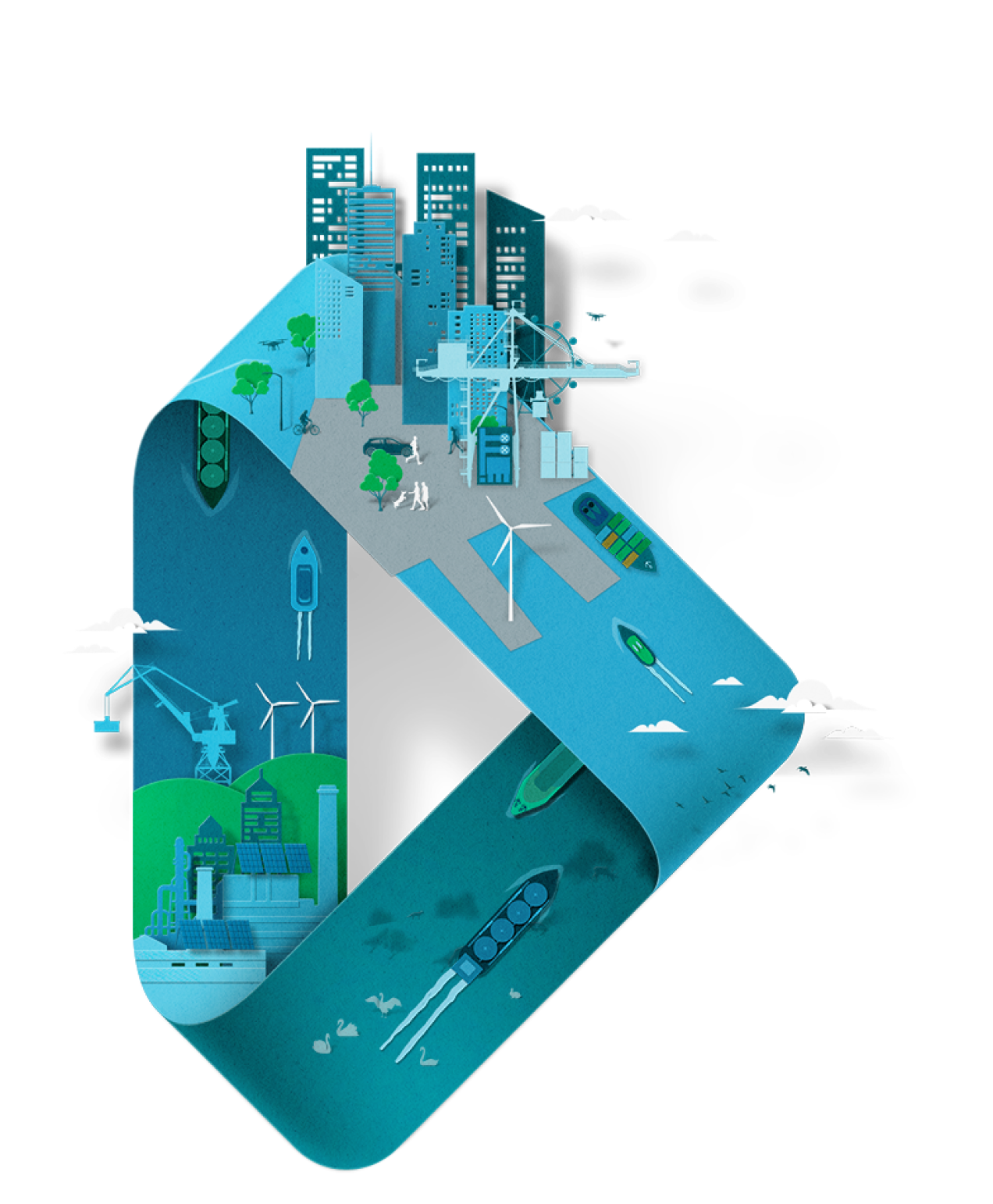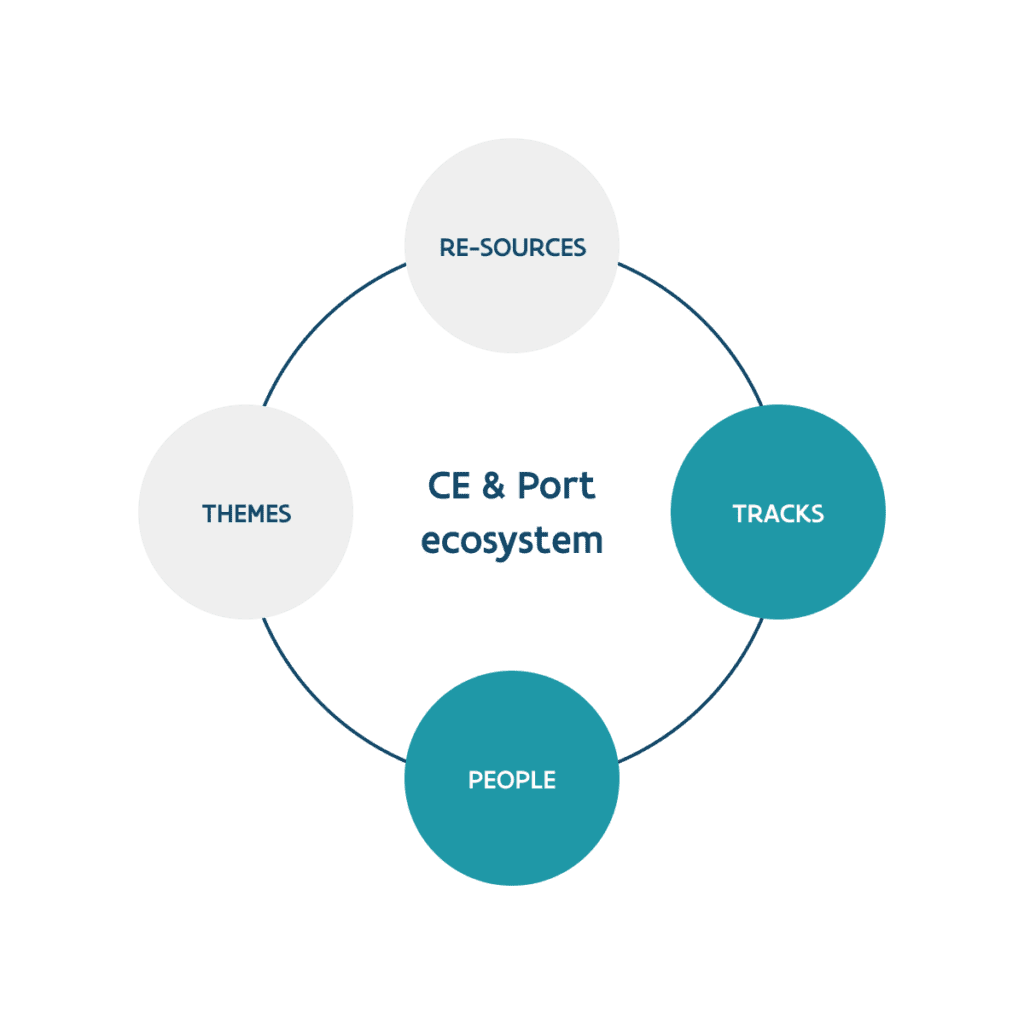Our value proposition
A go-to place for circular ports
Circular Ports is a product of Circular Flanders. We are constantly developing and improving this site as a go-to place for the circular economy and port communities.
We are not positioning Circular Ports as a policy or political programme to which everyone must conform in all respects. At Circular Flanders we have no ambition to be all-encompassing or to replace what the circular and port communities are already doing. Nor are we trying to be one of many consultants.
We primarily provide practitioners with a curated selection of re-sources and actionable insights to support and fuel their journey towards a circular future. We don’t have all the answers either, but we create a context for learning, doing and finding workable solutions.
The website focuses primarily on the Flemish and Rhine-Scheldt delta port region, but with a view to Europe and beyond. The port community is extremely international, so we communicate in English.

Our approach
The focus
The CIRCULAR ECONOMY and the PORT ECOSYSTEM is the FIELD OF ACTIVITY within which this site operates. The connection between circularity and ports is relatively new, yet there the topic is growing from a diverse range of interest groups such as port authorities, resource management organisations, urban and spatial planners, political geographers and various fields of research.
Original material from Circular Flanders initially formed the foundation of the information on this site and was complemented by third-party content that has been routinely added to the site. This resulted in the RE-SOURCES, the database which is continually updated to remain relevant to emerging communities of practice. As the topic of the circular economy and ports is emerging and multi-disciplinary, content curation became increasingly important to provide context and show links between material that may not be self-evident.
The complex and dynamic nature of the field, covering tough challenges, big issues and abstract goals can be paralyzing. This can make it difficult to get started. THEMES have been introduced as a series of niche topics that are considered relevant entry points. Each theme sets challenges and actionable insights as a conversation starter.
Our approach
Doing the doable
It is preferred start acting in an entrepreneurial and reflective way rather than waiting for the ideal conditions to present themselves. By realizing what is feasible and learning on the job, we will also fuel our cycle of evolving means (what we know-have) and partnerships (who we know) to achieve new, different, redefined and even higher goals. By doing so, multiple ‘small wins’ have the potential to accumulate and provide a solid basis for transformative change.
No port is an island. TRACKS are example of emergent processes in which shared goals and small wins can be traced over time. The ambition is to showcase the evolution of a process over years and describe how small parts resulted in a larger whole. This is useful to understand how collaboration and partnerships emerged, how research evolved and the context of results.
PARTNERSHIPS can be formed along a TRACK over a period of time, move on to other forms of collaboration, or end when the goal is (partially) achieved or the coalition doesn’t work anymore.

What you can do
Make our offer better
Feedback is a good thing. Whether you are an interested party, a circularity expert, a port professional, a policy maker or a researcher, you can help us to continually improve by giving us feedback. If we get it early, our team gets focused. It also helps us to see when we need to adapt or even change the way we work.
But you can also help us in the first place by spreading the word! This means things like: showing the website to your colleagues, staff and peers, sharing posts on social media, linking to reports, posts and tools in forums you participate in, etc. And if you have your own website, linking to Circular Ports would be a great help.